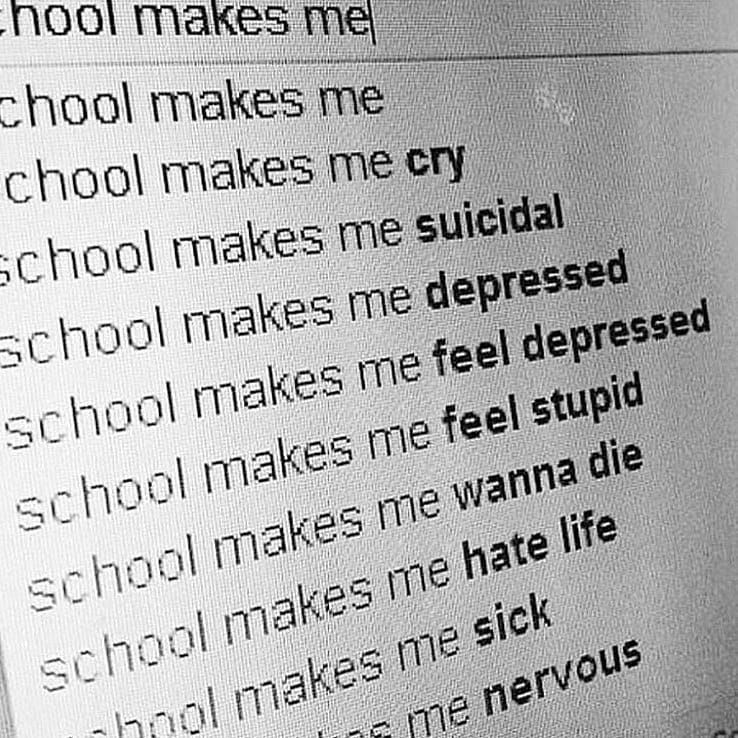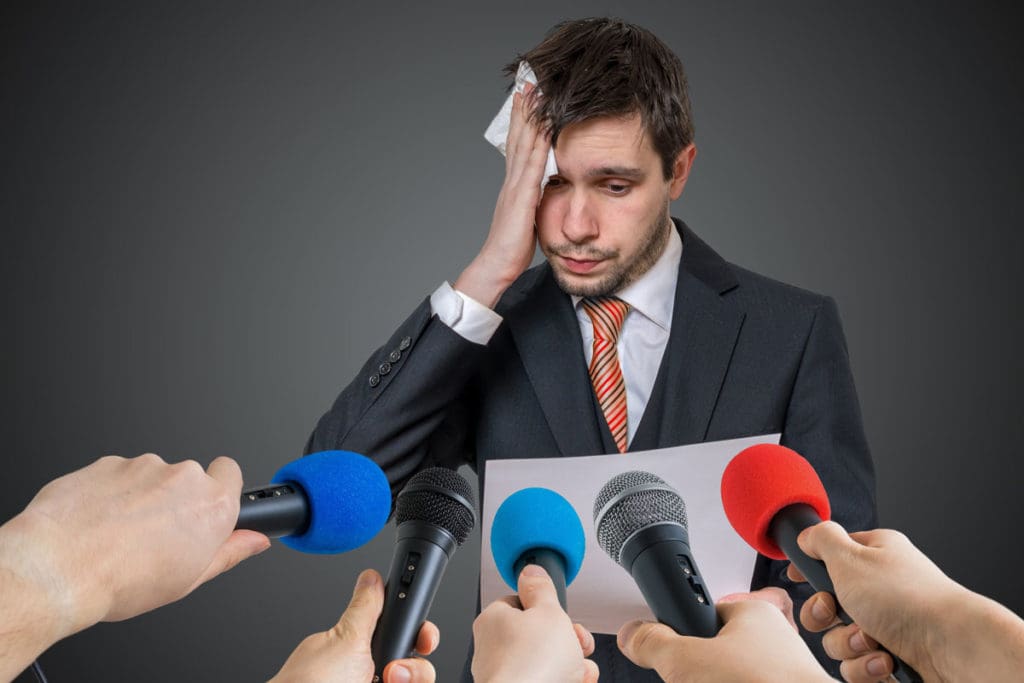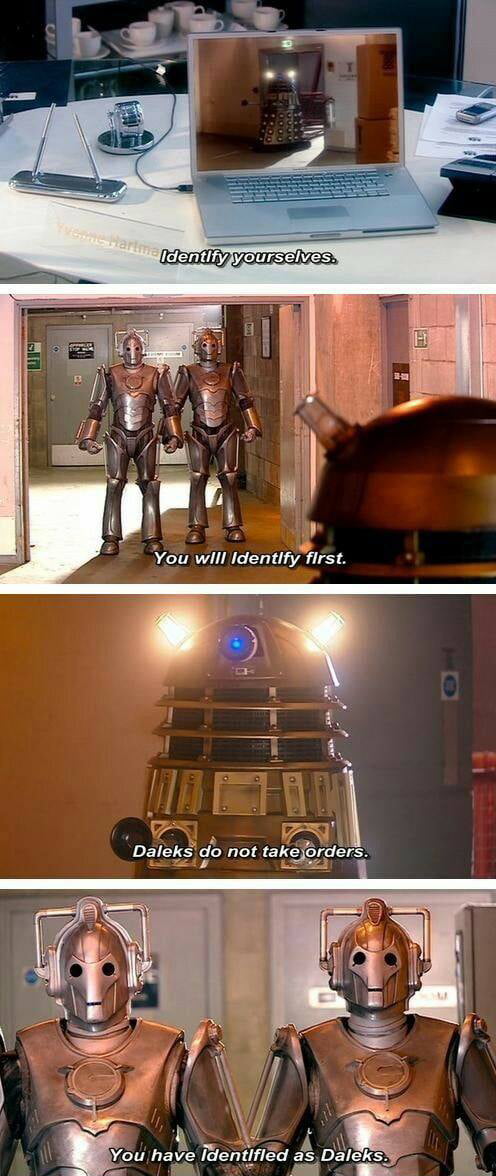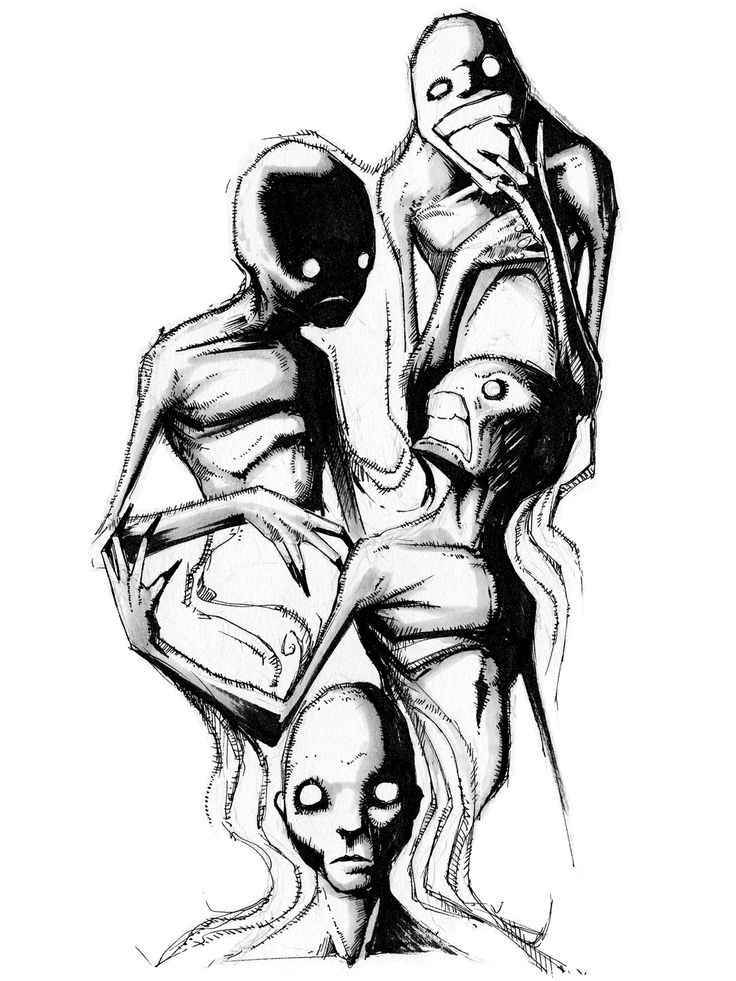How to be a good comedian
How to Be a Good Comedian
So you want to know what it takes to become a comedian? You’d like to try your hand at stand-up and perform your material at comedy clubs across the country? I’m about to reveal the secret that has been passed down from generation to generation, from early vaudeville performers to present-day stand-ups.
I am entrusting you with this knowledge because I sense a Frodo Baggins quality about you that convinces me you will carefully carry this precious secret with you, protecting it from every ne’er-do-well that you meet along your journey. So if you’re ready for this responsibility, prepared to hear the secret of stand-up comedy, protect the precious, here it is:
Be funny. Get people to laugh.
Well, I guess my job here is done. I’m kidding. It’s a joke. Not a particularly hilarious one, but an attempt, nonetheless. And as you’ll see, making an attempt – an effort – is part of what’s required in stand-up comedy.
Being funny and getting laughs is indeed a central component as well. There are several things to keep in mind as you set out on a career in comedy, or just information to know if you’re interested in the craft. Below are a few of those things.
So, in no particular order, here’s 10 thoughts on how to become the best stand-up comedian you can be:
See Related: 6 Funniest Female Comedians To Watch 2021
#1 Write Every DayAs we’ve said in previous posts before, in order to tell jokes, you have to write jokes. If you want to create new material and keep your act fresh, it’s a good idea to write every day. You may not have the time to sit down for hours at a time, but there’s almost always a free minute here or there.
Even if you don’t sit down to write, it’s better to capture an idea any way you can rather than to let it fade into a foggy memory of something that was definitely probably maybe pretty funny, you think, if you remember correctly.
Almost nothing is as frustrating as letting a good idea go by. Take advantage of the notepad or voice memo feature on your phone.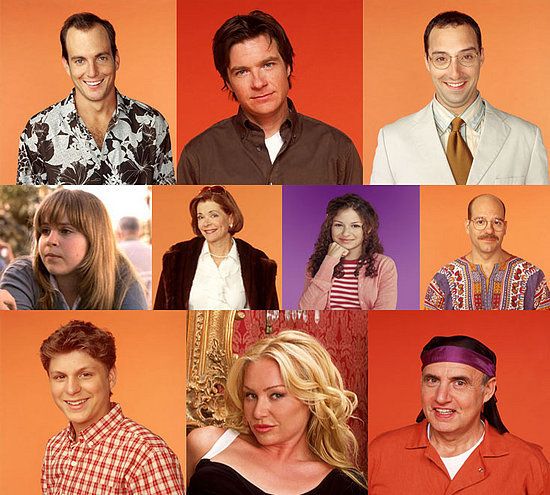 While not everyone carries around a pad of paper and pencil, most of us have virtual assistants in our pocket. So summon Siri, or Google Voice, or the overlooked Jan Brady of virtual assistants, Cortana. Use technology to help you record all your genius jokes, and then schedule a time to go through them and ask yourself if there’s something there.
While not everyone carries around a pad of paper and pencil, most of us have virtual assistants in our pocket. So summon Siri, or Google Voice, or the overlooked Jan Brady of virtual assistants, Cortana. Use technology to help you record all your genius jokes, and then schedule a time to go through them and ask yourself if there’s something there.
Writing down funny ideas and phrases, or even complete jokes is the first step, but your work is far from done. You should always see if you can make it even better. Is the set up of your joke a little long-winded? Try tightening the phrasing. Brevity is the soul of wit, after all.
Here are a few comedy writing tips that you can think about as you work on your material:
- Use specifics: Make sure to use specifics when you can. Saying “having some dental work” might not pack the same punch as “having a molar forcibly removed from my mouth.” Comedians are storytellers, so make sure the audience whether live or virtual is entertained all the way through
- Misdirection: Misdirection is a classic comedic device.
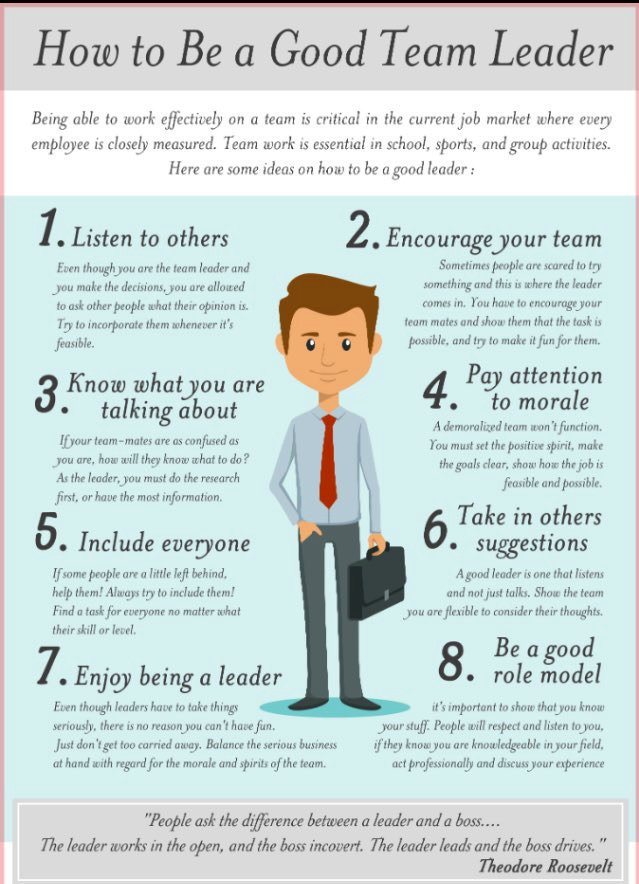 The set-up creates a certain expectation, and the punchline contains an unexpected payoff. I’ll use a Neil Degrasse Tyson tweet as an example: “If you removed all the arteries, veins, & capillaries from a person’s body, and tied them end-to-end…the person will die.” He’s getting people to think there’s an impressive medical or mathematical fact he’s about to reveal, but then he subverts that expectation for a laugh. Comedians use misdirection to surprise an audience, because the element of surprise is one of the best ways to generate laughter.
The set-up creates a certain expectation, and the punchline contains an unexpected payoff. I’ll use a Neil Degrasse Tyson tweet as an example: “If you removed all the arteries, veins, & capillaries from a person’s body, and tied them end-to-end…the person will die.” He’s getting people to think there’s an impressive medical or mathematical fact he’s about to reveal, but then he subverts that expectation for a laugh. Comedians use misdirection to surprise an audience, because the element of surprise is one of the best ways to generate laughter.
- Rule of Three: From the Three Little Pigs to the Three Amigos, people seem to love things in threes. When comedians tell jokes, they can play with this pattern. Generally, the first two things in the list are expected and not necessarily funny, and then the third thing brings the surprise and completes the joke. We’ll use a Wendy Liebman joke to illustrate: “I got my first bikini. It’s a three piece: It’s a top, a bottom, and a blindfold for you.
 ” This joke also includes a little self-deprecation, which brings us to another one of our tips.
” This joke also includes a little self-deprecation, which brings us to another one of our tips.
Here’s Jerry Seinfeld on the long (and somewhat secretive) process of joke writing and how he spends an inordinate amount of time on undeserving subjects. Watch how he also talks about the connective tissue that ties a bit together, kind of like a puzzle:
#3 Punch Up, not DownYou may be wondering, why do we need to punch at all? This is comedy, not kickboxing. Even though we do not advocate violence, you’ve got to admit every joke needs a punchline, so somebody’s bound to be the butt of a joke now and then.
Comedy has always been used to make us think about people in power, question our assumptions, and make an audience laugh. So before you get on stage that first time and start performing your material, you may want to take comedy tradition into account and try to punch up, now down.
Now, what exactly does that mean? Even though people should a sense of humor about themselves, you never want to get your audience angry or offended because you feel the need to insult someone based on their race, sex, ability, or other attributes, out of their control.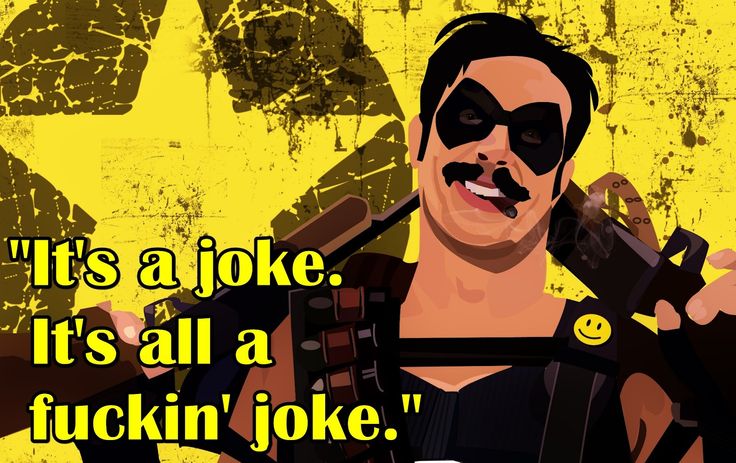 Even if it’s “just a joke,” there’s generally a better way at getting to the funny.
Even if it’s “just a joke,” there’s generally a better way at getting to the funny.
This doesn’t mean you can never poke fun at people, it’s just that you’ll need a take that’s original and says something insightful or ironic. Also, you can always “punch” yourself, like the self-deprecating humor mentioned above.
Maybe you’re thinking, but wait, you made that joke about Jan Brady earlier, and what did she ever do to you? That’s a good point, but she’s a fictional character and a pretty common pop culture reference that has become something of a symbol for sibling jealousy and whininess. However, there are successful comedians who don’t like to do any mean-spirited material, and you may prefer going in that direction with the jokes in your set.
Bonus: Top 10 Clean Comedy Movies Of The Last Decade
#4 Fighting Stage FrightThe thought of going on stage and doing stand-up comedy may be right up there with swimming in a shark tank, if you want to get real about people’s fears.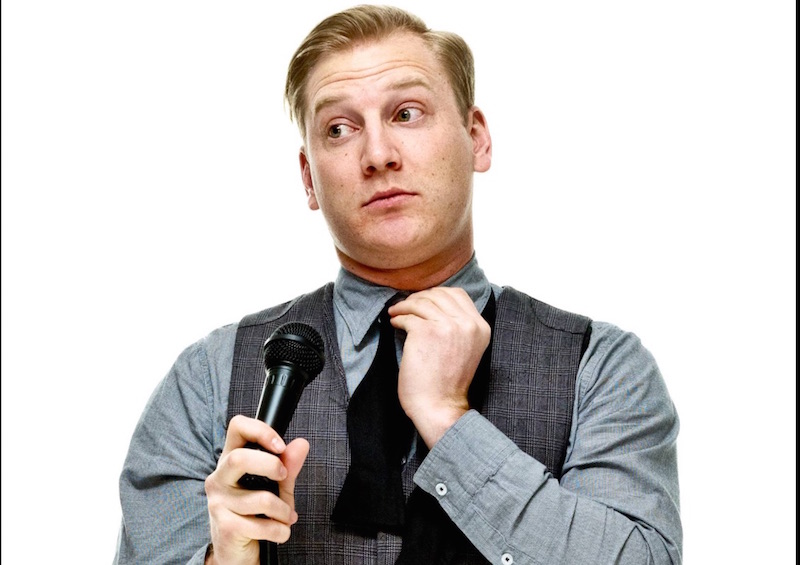 So kudos to you for getting the courage to face an audience with your own material. Luckily there are tips for comedians, or people who perform for an audience and aren’t quite yet a master of ceremonies.
So kudos to you for getting the courage to face an audience with your own material. Luckily there are tips for comedians, or people who perform for an audience and aren’t quite yet a master of ceremonies.
You can try different tips and you’ll learn which ones work best to help you relax and feel confident when performing. If you’re relaxed and take your time, it’s easier to make people laugh. Breathing exercises and visualization help many comedians get grounded before they go up on stage at comedy clubs and start their comedy set.
To become a comedian, you’ll need to get on stage and grab that mic like you mean it. Getting stage time will help you get over stage fright. It’s somewhat circular logic, but after the first time you stand on that stage and perform your material – even if it’s just an open mic where your audience consists of other comedians – you’ll be done performing your first set on stage. You’ll always know you can do it and not die.
Take that knowledge to your next open mic and tell yourself, I can do this one, just like the last one. To get good at stand-up comedy you’ll have to work at it.
To get good at stand-up comedy you’ll have to work at it.
You’ll be going to open mic after open mic until you find yourself on stage at a comedy club. And then you’ll do some more writing and head straight back to an open mic to work on the new material you’ll be performing at the comedy club. It’s the circle of stand-up comedy.
#5 Failure is your FriendLike life in general you occasionally need to take risks. There are no guarantees in comedy, but if you have a good sense of humor, you’ll probably have an inkling when something will strike people as funny.
At an open mic you can test out something you’re not sure will get a laugh. The audience will laugh, or not, and you’ll start to adjust your set or joke writing accordingly.
We learn more from making mistakes than performing the funny jokes that kill (though stand-up comedians may prefer the latter). Not every comedy show can be a success, but every time you perform jokes in front of an audience, it’s an opportunity to improve your material.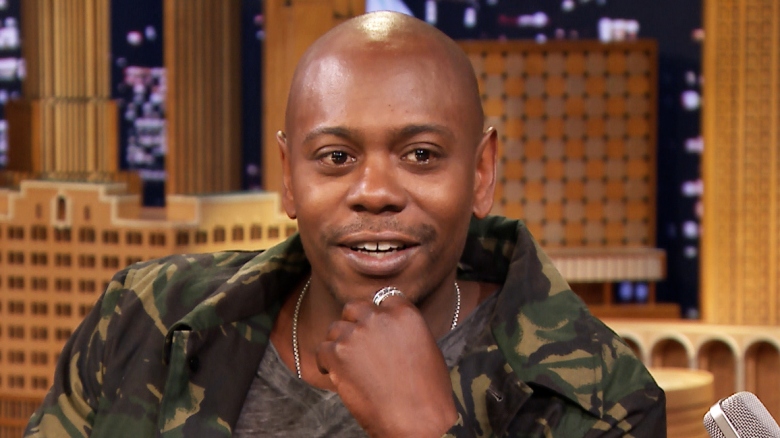 Failure is one of the best ways to learn how to get better.
Failure is one of the best ways to learn how to get better.
Comedians can continue to learn about writing and performing. There’s always a new way to see or think about something, and it can only help one’s career. Whether you read books about comedy or watch comedy performed live or virtual, you will get ideas about how to write and perform jokes. It goes without saying that you should never steal jokes, but that doesn’t mean you can’t observe how comedians skillfully set up their jokes or open up a set.
Being a student of comedy is like being a student of human nature. Comedians observe people and write what they find curious or funny about what they see. You’ll start to find humor in almost every situation as you learn to think like a comedian and watch what goes on around you. Your connection with the audience may become better as well.
The time you spend on comedy writing and performing will show. So crack open a book, or watch your favorite comedian’s last performance. In comedy, as in all things, learning never ends.
In comedy, as in all things, learning never ends.
To make people laugh at your jokes, you need to give them time to laugh at your jokes. In other words, don’t talk over the laughter if you can avoid it. Pause after a punchline. Let a joke land. Take a breath. Stand-up comedy and comedy, in general, is always about timing.
Be sure to leave time for an audience to catch up. You’ve told these jokes several times, but they are new to the audience, so give the people a minute to get it.
#8 Open with your BestWhen you perform stand-up comedy, open with a strong joke. Why save your best material for the middle, when the audience may have already dismissed you or made a snap judgment? As soon as people laugh, they are more likely to keep at it. Hit the audience with your best shot. Fire away. Pat Benetar begs you.
Build trust with the audience by assuring them you’re funny. They came to see comedy and want to laugh and have a good time. You own that stage, you know your material, and you’re going to work to make that happen. Set up your first joke quickly and get to the punchline.
You own that stage, you know your material, and you’re going to work to make that happen. Set up your first joke quickly and get to the punchline.
The audience is more likely to remember the first and last jokes you make in your performance, so end on a good joke, too. And while you’re at it, sprinkle a lot of funny jokes throughout your whole set!
#9 Structure your Comedy SetThe jokes you’re writing (and testing out on an open mic audience), become part of your 5-minute or half-hour or however-long set. As mentioned above, you’ll want to start and end your set with a strong joke. You may also want to work in a callback – a reference to an earlier joke. This is a great way to strengthen the connection with an audience and get a little more mileage out of a joke.
Don’t worry about non-sequiturs. Comedians often use one-liners to transition between jokes. The surprise of a new, unrelated joke can sometimes function as a sort of surprise, which we know is a good thing in comedy.
By no means does your comedy set need to have a single subject or even a theme, but it should fit the stand-up comedy persona you want to project. Basically your persona is you+ or a slightly exaggerated version of yourself. If you’re energetic and a little neurotic, be extra. If you’re dry and sarcastic like Steven Wright, lean in.
#10 Have Fun!If there were commandments in comedy, one would likely be thou shalt laugh and have fun. If you want to become a comedian, it’s probably because you like to watch other comedians tell jokes, and think telling jokes is fun. If the whole process seems like torture, you may want to seriously reconsider your career choice.
An open mic night might get you a little nervous, of course, but every comedian must make their way through the challenges and usually has a pretty fun time of it. Whether you prefer to write or perform comedy, you should always try to find the fun!
Keep Reading: 5 Ways To Make Your Virtual Event An Experience To Remember
—
Adam Christing is a professional comedy magician, virtual MC, and the founder of CleanComedians.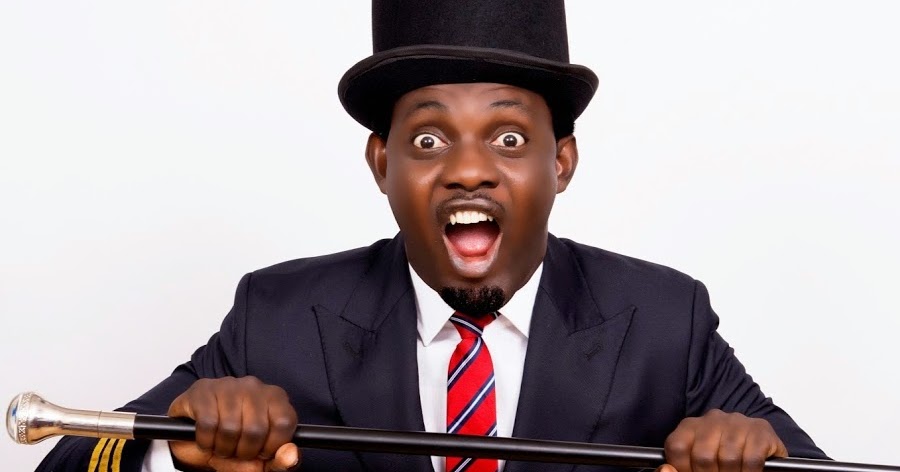 com. He is a member of the world-famous Magic Castle in Hollywood and a popular virtual comedian, magician, and virtual speaker.
com. He is a member of the world-famous Magic Castle in Hollywood and a popular virtual comedian, magician, and virtual speaker.
Top 10 tips for being a successful comedian
Published
Image source, Publicity
Image caption,Paul Merton says he was inspired by his good-humoured father
By Alison Feeney-Hart
BBC News
Paul Merton is a Bafta award-winning presenter, writer, actor and comedian, known for his improvisation skills and deadpan humour.
In a 2007 public poll, he was voted as one of the 10 greatest wits of all time.
He is well known for his regular appearances as a team captain on the BBC's Have I Got News For You and has also appeared as a regular panellist on Radio 4's Just a Minute. He has won Top TV Comedy Personality at the British Comedy Awards and after several nominations, he won a Bafta in 2003.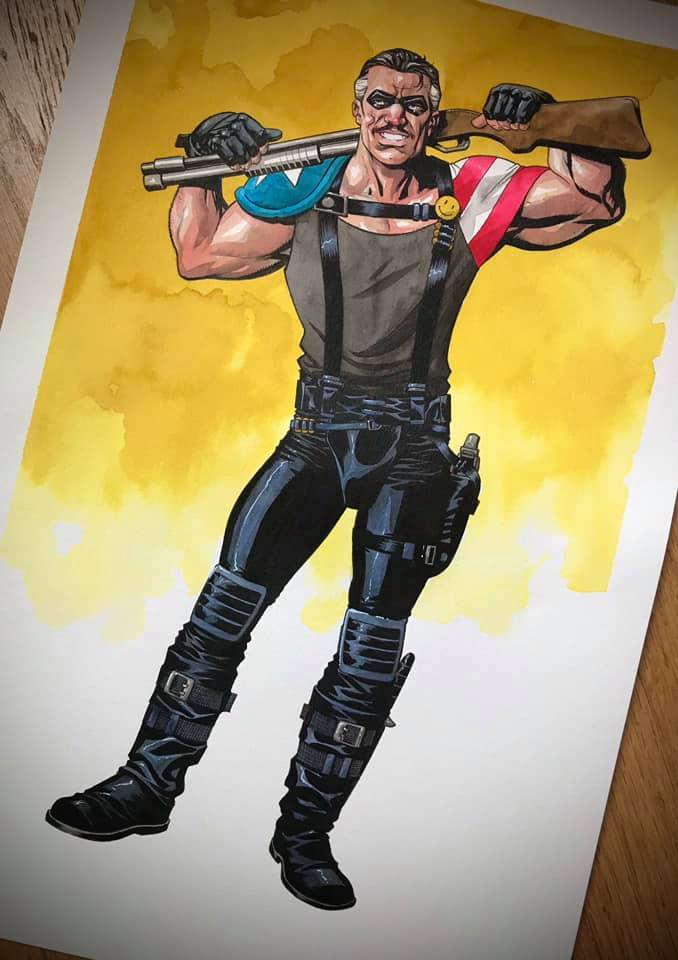
Here are his top 10 tips for being a comedian.
1. Make people laugh
My Dad had a lively sense of humour, he was always cracking jokes. I think perhaps that gave me the idea that being funny was a good way to behave, but I think it was going to the circus and seeing the clowns that had a big impact on me growing up.
When I was about 10 years old, I used to know a lot of jokes culled from children's comics and things, but eventually I got to an age where I realised that you have to write your own stuff.
Making your friends laugh at school or in the office is not the same as getting up on stage and making a bunch of people who don't know who you are laugh. But it is a step in the right direction and being funny around your friends is certainly one way of practising.
Get on stage and give it a go, that's the first thing you should do. That will tell you a lot. You could try it with a bunch of jokes which you've cribbed from the internet and pretend they're your own the first time.
Image source, Publicity
Image caption,Paul Merton has an easy approach to hecklers - just telling them to shut up generally works
If you felt that it worked and you enjoyed it, then it would maybe give you the confidence to try and write your own stuff, because eventually that is what you are going to have to do in the end.
Getting up on stage that first time will tell you if it's for you. If it's a horrendous experience, you won't want to ever do it again. It will tell you a lot about yourself, so just get up and try, everything else stems from that really.
It's like most things, thinking of something funny to say, quickly, requires practice. It's like a muscle I suppose, the more you do it, the better you will get.
Like any muscle, if I haven't worked live for a few weeks or if I haven't done a gig for a while, I find when I come back I'm a bit slower and it takes a while to get back up to speed.
It's about practice and about having the dedication and the temperament to pursue what you want to do I suppose.
If someone heckles you, just tell them to shut up, or be quiet. You don't have to engage them in great battles of wits, because they are inevitably very drunk.
I was doing a charity gig the other night and there was a guy who started shouting things out from the front row, so one of us just said, "Thank you for coming, other people are trying to listen," which was a nice way of telling him to shut up and he did.
It tends to only happen when there is a solo comedian on stage and the person shouting at them from the audience is envious of the person on stage, that's all it is. I find you don't need to think of a funny put-down for a heckler, just tell them to shut up.
You still have to be on TV I think if you really want to make it in the business. That may change in years to come, but at the moment, television is still immensely important. It creates the opportunity for so many more people to see you.
The thing is, there's only a small proportion of people who actually like you, but the more of them that see you the better so that you can start to build up a bit of an audience.
Even with Have I Got News For You getting something like five million viewers, that's still 45 million people who aren't watching. That's an enormous number. You need to know that most people don't care or at best are sort of ambivalent and be OK with that.
Image source, Publicity
Image caption,Paul Merton has proved his versatility and skill through his long-running success on stage and small screen
It's so important to learn from other comedians. When I first started I used to read autobiographies and watch other comedians on stage and watch how they were doing things.
If you think it is going to be a tough audience, watch and learn how a skilled comedian can turn that audience around. All that kind of thing can be picked up just by observing as well as doing it yourself.
I grew up loving comedy and great comedians, everybody from Charlie Chaplin through to John Cleese, they were important figures that you could be inspired by.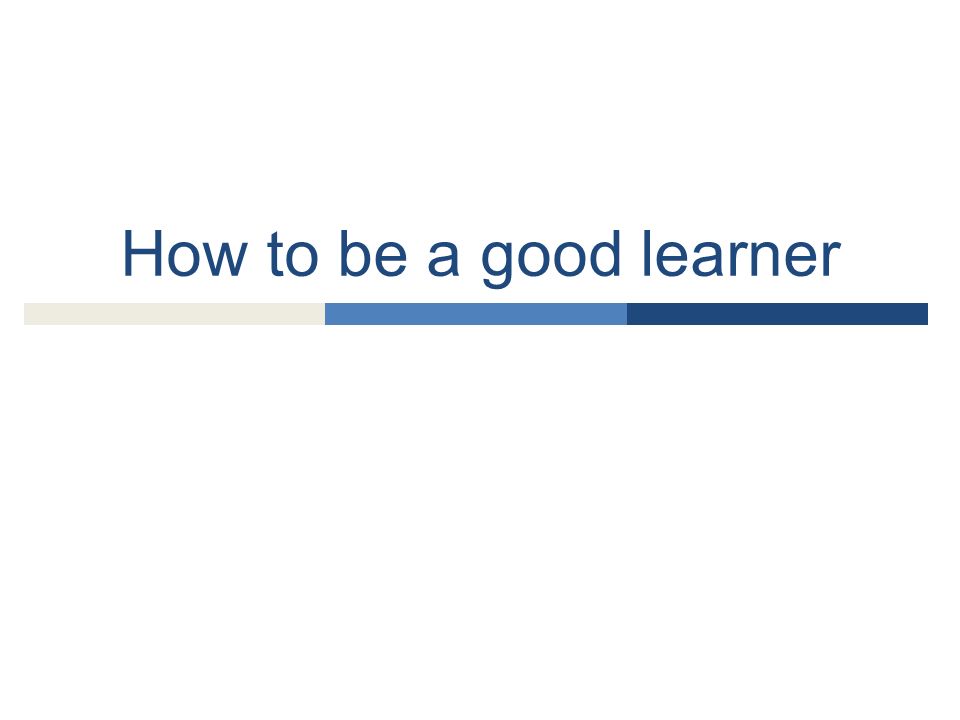
Getting awards isn't everything, they're not important. If you have a successful career in showbusiness you've already won the raffle.
I won a Bafta once and that was very thrilling, particularly as I'd been nominated 13 times, so eventually when I did win it, it was nice, because it was getting a bit rude. It's like being invited to a party and just before you turn up they say no, no, not today.
You can purposefully search for your own style of comedy or it develops through stage time, which is that key thing, being in a stage environment in front of other people as often as you can.
It doesn't come immediately, but everything comes down to that really, if you really want to do it, then you've just got to get on stage and experience performing live.
Your style will develop, the more you do it. When I first started I didn't have the style I have now necessarily, but it grows on you and you develop it over the years.
You had to be a member of Equity to appear on television when I was starting out; of course reality TV shows have put an end to that.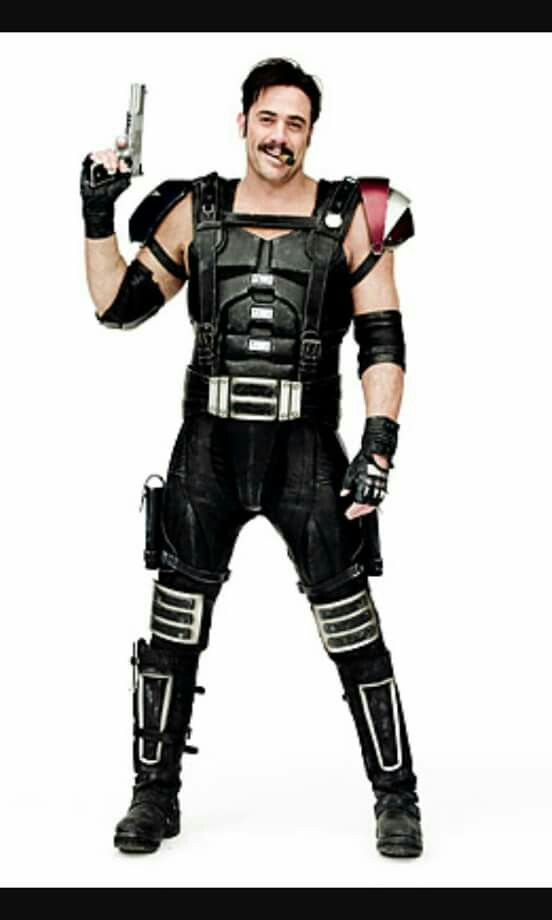 There was another guy, he was a juggler in Leeds called Paul Martin and you couldn't have two people with the same name.
There was another guy, he was a juggler in Leeds called Paul Martin and you couldn't have two people with the same name.
Because I always practised my signature as a kid, I didn't want to change my autograph, so Martin became Merton. I lived in that part of London and I remember thinking that was quite easy, just to change two letters and I soon got used to being called that.
When I thought of changing my name, I thought about changing it to a funny name, like Paul Funnybones or something, but you'd be sick of it after half an hour and be stuck with it. So the name is not so important, as long as it's not Captain Death or something.
My life hasn't always gone according to plan. The work is a therapy to the sadness and grief. When you are physically laughing at something, that's the only thing that you are aware of at that point and everything else, just for that moment, disappears.
I sometimes think laughter is probably the thing that stops us all going completely insane from the moment we are born. In the end, you have to please yourself as well as hopefully the audience.
In the end, you have to please yourself as well as hopefully the audience.
If I could go back in time and speak to my younger self when I was just starting out, I'd say don't worry, it will all be alright.
Paul Merton was taking part in the Guildford Book Festival in Surrey.
The BBC is not responsible for the content of external sites.
How to become a stand-up comedian from scratch? Where to start and how to write jokes?
Slava Malinkin has always loved humor: at first he was engaged in school KVN, and in the eleventh grade he became interested in stand-up. Four years later, he not only performs with his material, but organizes and leads stand-ups in Novosibirsk. Rost.media talked with Slava about how to join the stand-up party and not burn out on stage.
- Who is a stand-up comedian?
- There are different opinions, but it seems to me that a stand-up comedian is a profession, a craft, what you live by. There are guys who just have a hobby who will perform a couple of times at Open Mic. They are probably not stand-up comedians, at least I don’t want to consider them as such. Yes, this is a conversational artist who stands alone on stage, with a microphone. But this is a professional.
There are guys who just have a hobby who will perform a couple of times at Open Mic. They are probably not stand-up comedians, at least I don’t want to consider them as such. Yes, this is a conversational artist who stands alone on stage, with a microphone. But this is a professional.
— How do you assess the level of Novosibirsk stand-up?
- Based on what I saw in neighboring Siberian cities, I think we have very worthy guys with very worthy jokes. All so different, but with a very good level of gum.
Among the local stand-up comedians, I like young boys: Dima Pyankova, Yana Karpunkina. Vitalya Timofeev is a future legend, I'm sure of it. And from the Russian ones, I like Artur Chaparyan, Sasha Malay, Kirill Selegey.
- Now there is a lot of competition in stand-up. How to stand out from the crowd and become a comedian from scratch?
- A good question that everyone constantly thinks about. You just have to not copy anyone, not try to be like others. And how to do it - I do not know. Everything is individual here.
And how to do it - I do not know. Everything is individual here.
- Let's imagine that I want to become a stand-up artist, I need to perform my material for the first time. What do you recommend?
- You need to write in the search engine "Standup Novosibirsk", follow the first link and study the information. There are open mics where anyone can perform. You just need to write jokes, go on stage, not cry, come home and think: do you need it? If so, then you should come back and speak again.
In general, for beginners, everyone has the same advice, there are just millions of them on the Internet, and all these tips are about the same thing.
Now I think that the main thing is that there should be awareness in speeches. I think I've lost her. It is not entirely clear where to move and who to look at in the regions. Over time, everything loses its meaning a little, and you just go with the flow. We need some goals, but they are not obvious. Often I just go out, perform as the situation suits, and leave the stage: here I made something laugh, there are some improvisations, antics, and in the end I remain in the void. You need awareness when you go out and understand what you are doing and why. I told the audience this joke to make it happen. What for? It is necessary to analyze everything, there should always be work before and after.
Often I just go out, perform as the situation suits, and leave the stage: here I made something laugh, there are some improvisations, antics, and in the end I remain in the void. You need awareness when you go out and understand what you are doing and why. I told the audience this joke to make it happen. What for? It is necessary to analyze everything, there should always be work before and after.
— What problems did you face at the beginning of your journey?
- You come, you have no experience, you are afraid to speak, to write. The first year is just trying to figure out how to make people laugh. Then with experience everything becomes easier. Bad performances are also difficult, right? We've all had a bunch of bad performances in the beginning, they hit the hardest, right in the heart. But you have to deal with the silence in the hall and generally find yourself on stage.
Photo: archive of Slava Malinkin
— And what if the audience doesn't laugh?
- This question is before everyone who has ever spoken. I do not know what to do. I'm sure you don't have to pretend like everything is fine. You don't just have to keep telling everything that doesn't work for you. Probably, it is necessary to take some measures: to improvise, to joke about it, in general, not to ignore the fact that you perform poorly. It might be worth emphasizing this. If you can’t get better, then you shouldn’t delay, you should leave and think about what was wrong.
I do not know what to do. I'm sure you don't have to pretend like everything is fine. You don't just have to keep telling everything that doesn't work for you. Probably, it is necessary to take some measures: to improvise, to joke about it, in general, not to ignore the fact that you perform poorly. It might be worth emphasizing this. If you can’t get better, then you shouldn’t delay, you should leave and think about what was wrong.
— How do you feel when you perform?
- If before some important warm-up with a more or less large hall, then I get very worried. Ordinary "microphones" are already ordinary performances. In general, there is no excitement, just in my head I want to structure the performance so that it is clear what to say on stage. Nothing special. Just waiting. The most awkward thing about a performance is waiting for it, especially if you are at the end and there are a lot of comedians or you are taking a long time. This is starting to get depressing.
- You have been playing KVN since childhood. How did this experience in stand-up come to you?
— Thanks to KVN, I got stage experience and learned how to hold a microphone. Many people don't know how to do it. They hold him, like rappers, bespontovo, or take him somewhere far away so that it is not audible in the hall.
I also understand the structure of jokes, of course, because I tried to write them as a schoolboy. There must have been something in my head. I picked one joke at the first performances from my school KVN. If she's a joke, then stand-up will also be a joke. But now I would not take jokes from KVN, even if I played it. The approach is still different. I don't like it when there are just reprises in stand-up, like in KVN. Too superficial, just a joke for the sake of a joke. I want to make you laugh with unusual thoughts.
- Are there any forbidden topics for jokes?
— You can joke about everything, which is not against the law.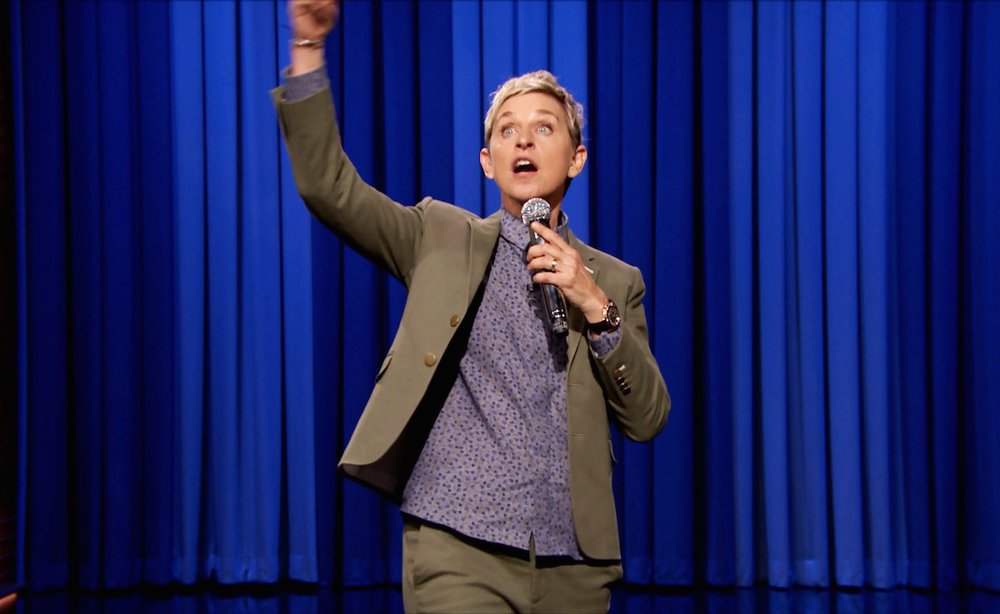 If you find something funny, then please. But if you joke about faith, Muslims or Chechnya, don't be a fool, get ready for the consequences.
If you find something funny, then please. But if you joke about faith, Muslims or Chechnya, don't be a fool, get ready for the consequences.
— Can you learn to joke?
Yes. I want to believe it. I don’t think that “wow, how I know how to joke,” so I always sincerely believe that you can become better. Probably, there should be some adequacy in the head initially. There are people who annoy with their every word, who do not have this humorous adequacy. If you are a good person, smart, not stupid, adequate, progressive, then most likely you will learn to joke.
— What does stand-up give you?
- In material terms - I do not work anywhere, so stand-up gives me money to live. Already good. And morally, this is my favorite pastime, nothing else brings me such pleasure as performing on stage. I just love performing. I can't not perform.
- You not only perform with your stand-ups, but you also organize evenings yourself.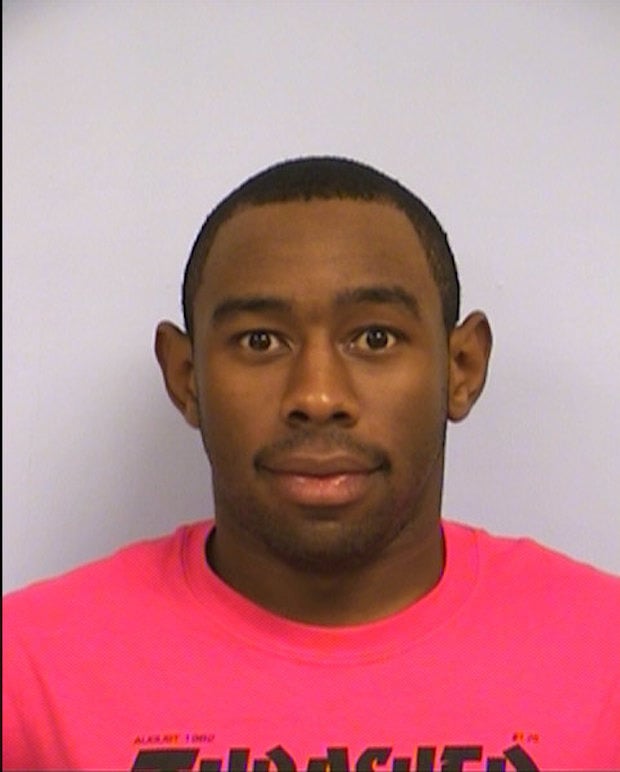 Tell me more about how it goes.
Tell me more about how it goes.
- It always goes differently. Either I write to some institution if I like it, or the art directors themselves write to me: “Here, we want it very much, our owner loves it, do a stand-up.” I talk about the options for cooperation, if they agree to one of the proposed ones, then we prepare a stand-up, a poster, and advertise the event. I choose a line-up of comedians who I think will enter the audience of the place. I try to be objective, but it doesn't always work out.
— Have you ever thought about moving to Moscow, about participating in major television projects?
- Actually, I was thinking about getting into the Open Mic. I have such a story that every year I want to go, but in the end it doesn’t work out. Then I look at those who passed, and I get very upset, often I am dissatisfied with the participants. But there are a lot of cool comedians, besides my friends. I just don't like this TV industry and how the product ends up looking.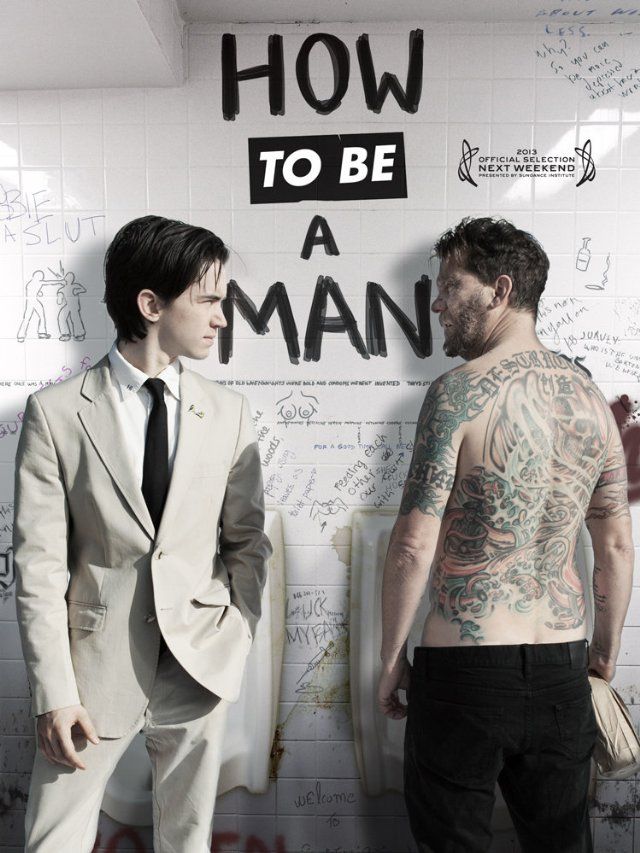 But I understand why they go there and why such projects exist. I have not yet fully formulated my attitude towards them. On the one hand, I want to participate, and on the other hand, I want to find another way, more independent. Just not sure which one.
But I understand why they go there and why such projects exist. I have not yet fully formulated my attitude towards them. On the one hand, I want to participate, and on the other hand, I want to find another way, more independent. Just not sure which one.
But I would like to move to Moscow someday. Probably, this will happen when I consider that in Novosib I can’t do anything better anymore.
I want to perform solo for the third year already, but something is still stopping me: what if no one comes? I want to spend more time on stage, write better jokes, and make people laugh at the same time, of course.
***
Earlier, Rost.Media published an interview with the curators of the KVN movement in the Novosibirsk Region, Alexander Zagryadsky and Alexei Lukomsky.
How to become a comedian, a great humorist and the soul of the company ☺ School of humor
Almost all people joke, but only a few collect halls and get paid for it. Let me guess: you've been wondering how to become a comedian or a great comedian and soul of the company.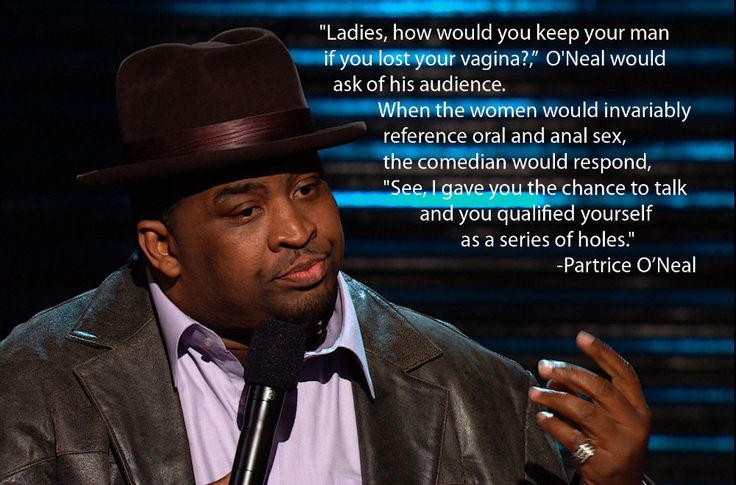 Then I have a mini self-analysis test for you, which will help you determine right now what kind of humorist you are or want to be.
Then I have a mini self-analysis test for you, which will help you determine right now what kind of humorist you are or want to be.
What type of comedian are you?
Types of comedians
There are three kinds of comedians:
- Random comedian
The occasional comedian or writer of the comedy of coincidences is one who expects something funny. When this happens, he takes notes. Or if something funny happens to him, he puts it at the core of his material.
How to become a comedian
To be a casual comedian, all you need to do is have a notepad or notepad app on your iPhone.
- Architect
A comic architect can take something mundane, everyday and turn it into a funny one. A true comedic architect believes that he can take any logical chain of words and make them funny; sometimes even can turn one word into a joke ...
For example, my brother once bought himself a very expensive Bell motorcycle helmet.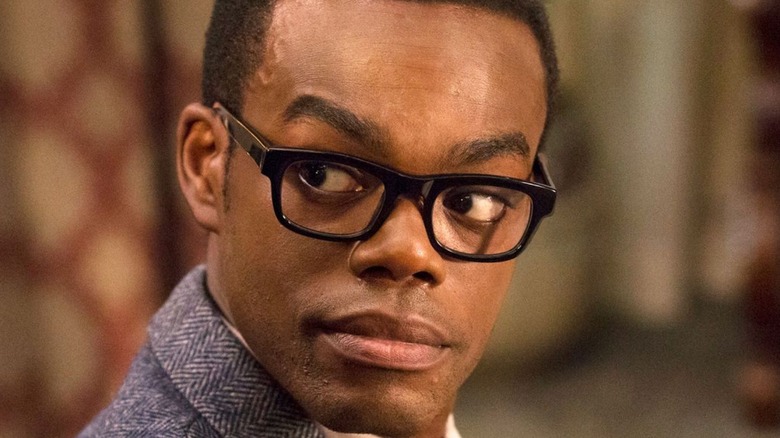 He blew dust off him and if his girlfriend accidentally dropped his helmet, he was ready to shoot her.
He blew dust off him and if his girlfriend accidentally dropped his helmet, he was ready to shoot her.
Sample joke
And then one day, when I was bowling with them, my brother teased his girlfriend. And she answered, “Once again, and I will give you a Bella.” I caught the topic, and, rolling my eyes, asked again: “According to Bell? Wow!"
A new meaning for the word Bell has been introduced here. Thanks to the presentation, everyone understood what I meant by the word Bell. We had a good laugh, and in the future this word served us as a tag of laughter for a long time.
To see the process of how this joke was created, apply for a free webinar on developing a sense of humor. There we will walk through an example of the comedy structure "Double Entendre" step by step.
There are 13 such basic structures and if you want to develop your sense of humor and learn how to write jokes, you need to at least familiarize yourself with them.
- Comedian
A comedian is a comedian who includes the above two types.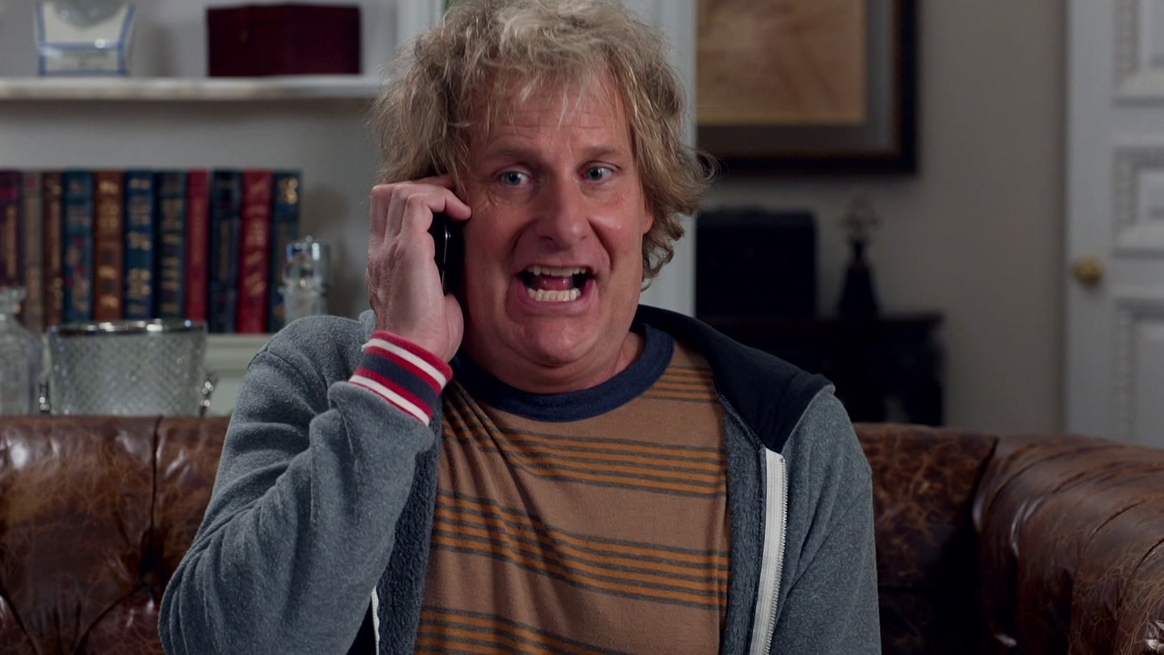 He knows how to notice funny situations in life and present them even more funny. And also knows how to create funny stories out of not funny situations. He understands the structure of comedy well and can create material even when he has no inspiration.
He knows how to notice funny situations in life and present them even more funny. And also knows how to create funny stories out of not funny situations. He understands the structure of comedy well and can create material even when he has no inspiration.
How to become a real humorist
Since the humorist uses two options for creating funny, he, accordingly, gives out twice as much material. It is customary for him to work on a monologue all day and then write commissioned jokes all evening. More than a hundred jokes per evening.
Some students ask me what is the use of writing such a huge amount of material if you can't use it all? The answer is simple: when you write a lot of material, you will become a better writer faster. And if you can't use a joke for your own performance, you can always sell it! Your clients can be radio stations, television, newspapers, magazines, websites, other comedians, toastmasters, etc.
To become a comedian, write everything down anytime, anywhere
Do you understand? It doesn't matter if you use your jokes or not. The more you write, the more professional you become. This is what matters. It hones and develops your sense of humor. If your goal is to be a great comedian or a great comedy writer, then you need to train hard and do it regularly.
The more you write, the more professional you become. This is what matters. It hones and develops your sense of humor. If your goal is to be a great comedian or a great comedy writer, then you need to train hard and do it regularly.
How to become a humorist: Comedy is not frivolity
If you work hard and learn this trade, you can easily start working in the field of comedy, and not just make your friends laugh.
But knowing how comedy works is not the same as mastering the craft. Comedy is not bookkeeping. And a comedian is not an accountant. The accountant is linear, analytical and noisy.
Comedy is not accounting, but a comedian is not a noisy accountant
The left hemisphere of our brain controls our linear or analytical thinking. Our right brain controls creativity and emotions. Comedy activates both hemispheres of our brain.
See a quick diagram of the various brain resources and how comedians of various kinds use them. This will give you a pretty good idea of your own tendencies and help you develop your sense of humor further.
How to become a comedian and use your brain to 100%
Use of the left hemisphere of the brain
More used for writing.
- Current events.
- Something that can be funny.
- Analyzes humor for tags.
- Humorous play on words.
- More structured.
- Using laugh triggers.
- Can produce volumes of material.
- Solve jokes - puzzles.
- Uses puzzles in jokes.
- The material can be complex, intoxicating, deep, factual.
- Uses magazines, newspapers, the Internet to find material to create funny things.
- Rational.
- Serial.
- Looks at parts.
Use of the right hemisphere of the brain
More used for improvisation.
- Creative.
- Spontaneous.
- Works more on feelings, emotions.
- Prone to observational humor.
- It usually lacks structure.

- Inconsistent.
- Characteristic initiative.
- Parodies of songs.
- Impressions.
- Random.
- Intuitive.
A good humorist uses both hemispheres
The comedian uses both sides of the brain to use both imagination and cognitive skills. To understand when his observations are funny. At the same time, he sits down and creates jokes from any information and news.
A good humorist uses both hemispheres
The advantage of using both hemispheres of the brain is that you have immediate access to more material. Volumes! In addition, a humorist can take any word string and make it a funny joke by applying the 13 basic comedy structures. Want also? Sign up for a free webinar.
This makes humorists more in demand in the sense that they can now write and sell material, write scripts, sketches, humorous columns, blogs, novels, and so on. It is important to learn how to connect the mechanisms of the right hemisphere with the left.
